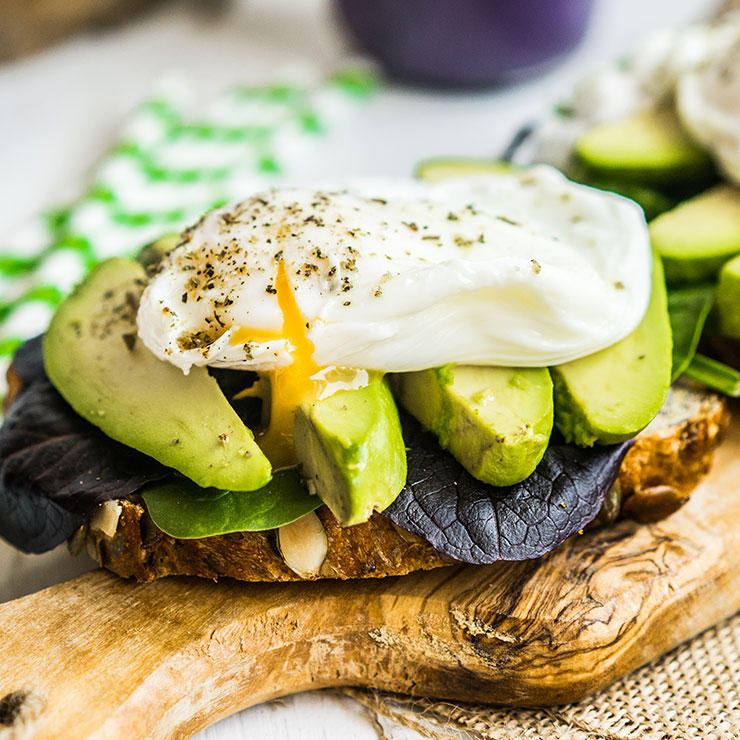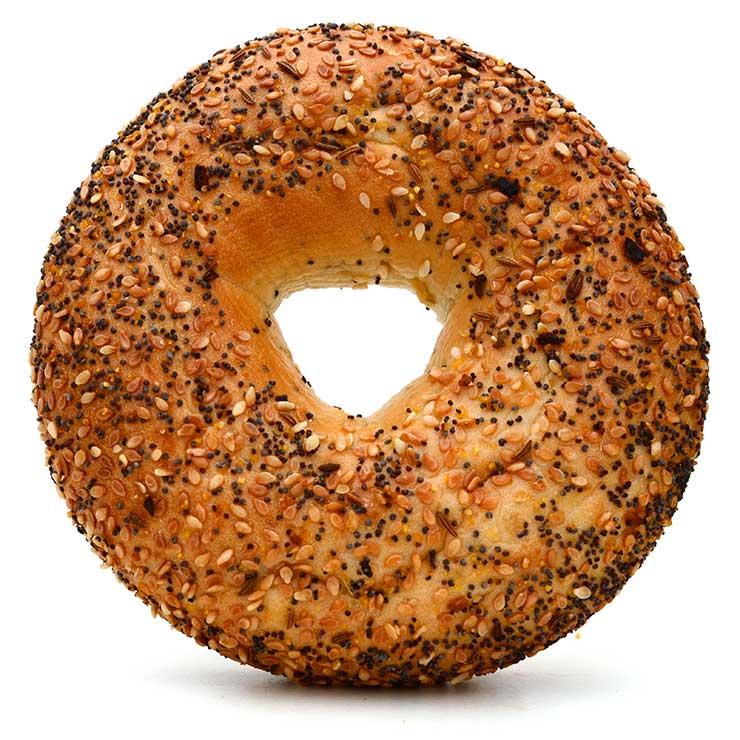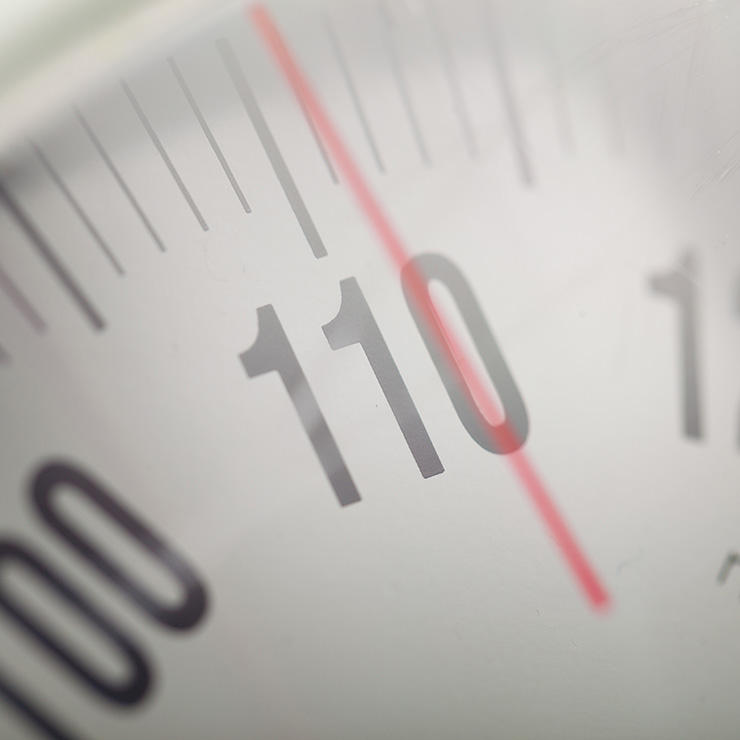From the time you were a little kid, you've known that food does way more than provide your body with fuel. Whether the sight of a frosted cake makes you instantly happy (birthday parties!) or the scent of fresh-baked bread conjures up the warmth of Grandma's house, you probably have strong emotional reactions to many of the items that you seek out—especially the so-called comfort foods you turn to when you're in need of some extra TLC. But whether those same foods are equally comforting after you've finished eating them is another story.
That's where nutritional psychology comes in. Experts in this growing yet currently unregulated field aim to help patients understand how various nutrients affect their mood and behavior. Chances are certain foods (or too much of them) leave you feeling lethargic or even a bit depressed, while others seem to energize and invigorate you. A nutritional psychologist—generally a PhD or PsyD with some sort of training in nutrition—can help you sort out which foods are best for your body as well as your mind.
Although the field of nutrition psychology is relatively new, there is some decent science to back it up, says Amanda Baten, PhD, a psychologist in New York City who is certified in clinical nutrition and holistic health. If you're intrigued by the idea that what's on your plate can change your mental state, read on. Here are 5 tips from nutritional psychologists that you can start using right now. (Lose up to 15 pounds in just 30 days with this revolutionary superfood plan from the publisher of Prevention!)
Start
 1/5
Keep a food/mood journal.
1/5
Keep a food/mood journal.
If you've tried to lose weight in the past, you might have already tried jotting down every morsel that goes in your mouth. Now give it another go, but with a twist: Instead of just writing when and what you eat, make note of how you feel before and after eating. What was your mood like? Your energy level? Did you feel physically uncomfortable? Satisfied? Keeping detailed track of these feelings for about a week can help you understand the effects that certain foods have on your body. "This really helps people learn to see that food is the fuel for body and brain," says Baten.
Take a week to eat clean.
 2/5
Take a week to eat clean.
2/5
Take a week to eat clean.
Once you've gotten a sense of how your normal eating pattern makes you feel, it's time to keep another food diary—but this time also aim to eat clean foods. Ephimia Morphew-Lu, founder of the Center for Nutritional Psychology and an instructor at John F. Kennedy University, suggests taking a week to eat only whole, unprocessed foods to see what they do to your mood and energy.
"Do not focus on losing weight. Rather, this is a 'mood and well-being experiment,'" she says. Morphew-Lu advises eating three large meals per day, each consisting of a large serving of fresh vegetables; a medium serving of fresh, unprocessed lean protein (like fish or quinoa); a little healthy fat; and a small carbohydrate portion (like half a sweet potato or half a slice of bread).
Again, take detailed notes about your mood and energy levels. How's your mindset? How does your stomach feel? How are you sleeping? After the week is up, compare this to the journal you kept before you made any dietary changes. "This begins [people] on the journey of understanding experientially for themselves the effects their daily diet is having on the way they actually feel and experience life each day," Morphew-Lu says.
Think before you bite.
 3/5
Think before you bite.
3/5
Think before you bite.
Once you have a grasp on how various foods make you feel, you should use that intel to guide your food picks going forward. "It's a choice," Baten says. "Do I want to eat that bagel and be tired, or have a smoothie and avocado on whole wheat toast, which will give me a much different experience?"
Of course, sometimes you might really want the bagel (or chips or cupcake) anyway—and that's OK. Morphew-Lu recommends following the 90/10 rule: 90% of what you eat should be healthy food that will benefit your body and your mind; 10% can be whatever tastes good, even if it's mostly devoid of nutrients.
Try not to rock the boat.
 4/5
Try not to rock the boat.
4/5
Try not to rock the boat.
Baten doesn't recommend a specific diet to her clients, but she does emphasize the importance of keeping your blood sugar stable. Foods that cause spikes may energize you for a moment, but then send you crashing back down. "Whether we're talking about energy levels, dealing with disease, or thinking about weight loss," blood sugar comes into play, Baten says. "Keeping it stable will have a direct consequence on your mood, weight maintenance, and more."
Refined carbs (white bread, crackers, pasta, etc.) are notorious for messing with blood sugar, and you should be especially cautious about consuming added sugar. Not only does it spike your blood sugar levels, but it can also damage your health in many other ways. "Excessive sugar consumption has been linked to cancer, obesity, depression, anxiety, and a host of other physical and mental ailments," says Morphew-Lu, who notes that sugar is "highly addictive."
Have reasonable expectations.
 5/5
Have reasonable expectations.
5/5
Have reasonable expectations.
If you choose to seek out the help of a nutritional psychologist, you probably have a specific goal in mind. While that's a good thing, make sure that your target is achievable. You're more apt to be successful if you make small changes rather than try to overhaul your entire life at once.
"If someone comes to me saying, 'I won't be happy until I lose 30 pounds,' I tell them don't look at the top of that mountain," Baten says. You may be better off aiming to lose a pound a week, or not focusing on the scale at all: Many people who tune in to how food makes them feel are able to slowly shed some weight without ever going on a "diet."
- Prev:Raspberries: Nature’s new fat burner?
- Next:Exactly How I Exercised To Lose 50 Pounds
 1/5
Keep a food/mood journal.
1/5
Keep a food/mood journal.
 2/5
Take a week to eat clean.
2/5
Take a week to eat clean.
 3/5
Think before you bite.
3/5
Think before you bite.
 4/5
Try not to rock the boat.
4/5
Try not to rock the boat.
 5/5
Have reasonable expectations.
5/5
Have reasonable expectations.




